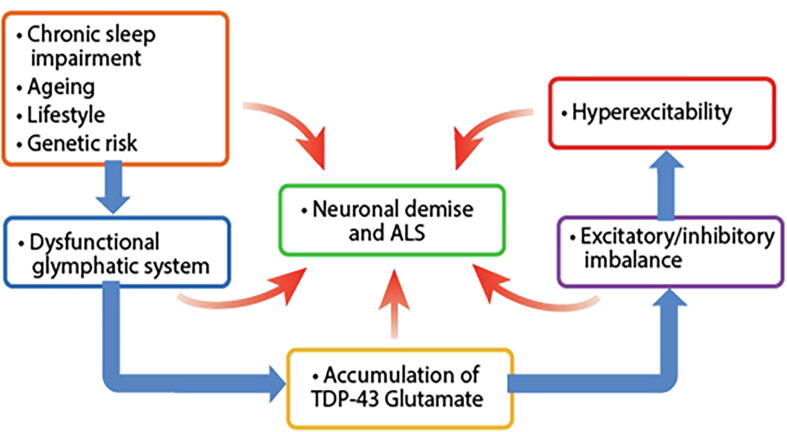Fig. 6.
Neurodegeneration in ALS and neuronal demise involves a complex array of genetic, molecular, functional and pathological pathways. Genetic risk may exert influences across the lifespan, including ageing and lifestyle factors, particularly sleep. Dysfunction of the glymphatic system contributes to altered brain and neuronal function. Separately, glutamate excitotoxicity generates free radicals which further contribute to the process of neurodegeneration, with oxidative stress, mitochondrial dysfunction, intracellular aggregates that adversely affect transport processes, with imbalance of excitatory and inhibitory brain function promoting the emergence of hyperexcitability as a key factor linked to neurodegeneration in ALS.

